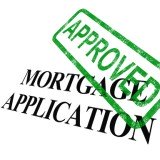Refinancing Rental Property Mortgage
Learn the important basics of refinancing rental property and taxes today. Let us show you how to refinance rental property mortgage and avoid property taxes.
Mortgage Refinancing vs Cash Out Refinancing
The basic idea behind rental property refinancing is simple yet powerful. When you refinance a rental property mortgage, you are replacing your current mortgage loan with a new loan with different terms and conditions (and interest rates).
There are two methods of refinancing - Mortgage Refinancing and Cash Out Refinancing.
Mortgage refinancing replaces your remaining debts with a new mortgage that has lower interest rates and/or better terms.
For example: You took out a mortgage loan of $200,000 at 8% interest rate to buy your rental property. Ten years later you have paid off $100,000 of the principal and mortgage rates have fallen to 5%. To make things simple, let's assume that the your property value remains at $200,000 after ten years.
If you go for a mortgage refinance, you will be replacing your current mortgage with a new loan of $100,000 at 5% interest rate.
Cash out financing rental property: Taking on a new loan larger than your remaining debts to free up the property equity as extra cash. In other words, you will get to pocket a tidy sum of money in exchange for a larger mortgage debt.
Returning to our example above: You choose to cash out refinance rental property and withdraw $50,000 in cash. In this case, your new mortgage amount will be $150,000 (instead of $100,000).
Guide to Refinancing Rental Property and Taxes
Let's say you bought a rental property for $250,000 and paid a down payment of $50,000... meaning that you took out a mortgage loan of $200,000. Three years later, the value of your rental property rises to $300,000 and you still owe $150,000 in mortgage debts.
What can you do to pocket the profit from this increase in your rental property value?
The first method is simple and direct. Look for a suitable buyer and sell off your rental property for a tidy profit. However this means that you will be slapped with capital gains tax on rental property and have to give up a chunk of your profits.
In this case, cash out refinancing is a smarter choice because you will not only avoid paying a single cent on capital gains taxes, but also get to keep your rental property. The money that you pocket from refinancing rental properties is completely tax-free as well.
Returning to the example above, what will happen if you choose to refinance your rental property instead? Let's say you manage to find a mortgage lender who is willing to lend you 80% of the current property value ($300,000), meaning that the new mortgage for your rental property will be $240,000.
After paying off the remainder of your old debt ($150,000), you will end up with $90,000 of cash that you are free to re-invest or spend.
- How to Get a Rental Property Loan
- How to Choose a Mortgage Type and Term
- How to Finance Rental Property in 4 Steps
- Mortgage Application Documents Checklist
- Free Mortgage Payment Calculator
- 5 Proven Ways to Lower Mortgage Payments
- What are Mortgage Closing Costs?
- How to Lower Mortgage Closing Costs
- Introduction to Refinancing Rental Property
- 3 Top Reasons to Refinance Your Home


